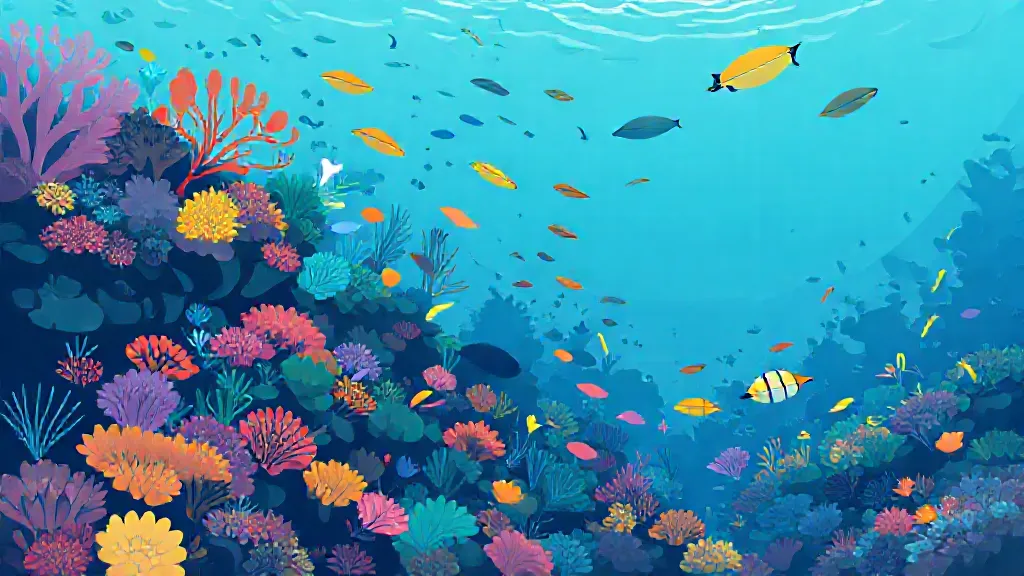Coral reefs are often referred to as the "rainforests of the sea" due to their incredible biodiversity and the vital ecological roles they play in marine environments. Just like tropical rainforests, coral reefs are home to a vast array of species, providing habitat, food, and breeding grounds for countless marine organisms. This article delves into the reasons behind this comparison, highlighting the similarities and the critical importance of coral reefs in sustaining marine life.
The Rich Biodiversity of Coral Reefs
Coral reefs support approximately 25% of all marine species, despite covering less than 1% of the ocean floor. This staggering statistic underscores the immense biodiversity found within these ecosystems. Coral reefs are composed of living corals, which are marine invertebrates that form colonies.
These colonies create a complex three-dimensional structure that provides shelter and food for a myriad of organisms, including fish, mollusks, crustaceans, and even larger species like sharks and sea turtles. This biodiversity is akin to that found in tropical rainforests, where a single tree can support hundreds of species.
The Ecological Functions of Coral Reefs
Beyond their role as a habitat, coral reefs provide essential ecological functions.
They act as natural barriers, protecting coastlines from erosion and storm surges. This protective function is crucial for human settlements along coastlines, as it helps mitigate the impact of severe weather events. Additionally, coral reefs contribute to nutrient cycling within marine ecosystems, supporting the overall health of the ocean.
The symbiotic relationship between coral and zooxanthellae (a type of algae) also plays a significant role in energy production, as these algae provide food for the corals through photosynthesis.
Threats to Coral Reefs and Their Biodiversity
Despite their importance, coral reefs face numerous threats that jeopardize their health and biodiversity. Climate change, primarily through rising sea temperatures and ocean acidification, poses a significant risk.
Coral bleaching, a phenomenon where corals expel their symbiotic algae due to stress, can lead to widespread mortality of coral colonies. Additionally, overfishing, pollution, and coastal development further exacerbate the decline of these vital ecosystems. The loss of biodiversity within coral reefs can have cascading effects on marine food webs and the overall health of the ocean.
Coral Reefs as Indicators of Ocean Health
Coral reefs are often considered indicators of ocean health. Their sensitivity to environmental changes makes them a valuable tool for scientists studying the impacts of climate change and human activity on marine ecosystems. Monitoring the health of coral reefs can provide insights into the broader health of the ocean, as declines in coral health often signal deteriorating conditions for other marine life.
Efforts to preserve and restore coral reefs can thus contribute to the resilience of entire marine ecosystems.
Conservation Efforts for Coral Reefs
Recognizing the importance of coral reefs, various conservation efforts are underway globally. Marine protected areas (MPAs) have been established to safeguard critical habitats and promote sustainable fishing practices.
Restoration projects, including coral gardening and artificial reef construction, aim to rehabilitate degraded areas. Additionally, raising public awareness about the significance of coral reefs and the threats they face is crucial for garnering support for conservation initiatives.
The Economic Value of Coral Reefs
Coral reefs also hold significant economic value.
They support fisheries that provide food and livelihoods for millions of people worldwide. Furthermore, healthy coral reefs contribute to tourism, attracting divers and snorkelers to experience their beauty and biodiversity. The economic benefits derived from coral reefs highlight the need for sustainable management practices that balance ecological health with human interests.
The Future of Coral Reefs
The future of coral reefs largely depends on global efforts to combat climate change and reduce human impacts on marine environments. Initiatives aimed at reducing carbon emissions, improving waste management, and promoting sustainable fishing practices are essential for the long-term survival of coral reefs. Collaborative efforts among governments, scientists, and local communities are vital to ensure that these ecosystems continue to thrive for generations to come.
Conclusion: The Call to Action
In conclusion, coral reefs are aptly named the "rainforests of the sea" due to their unparalleled biodiversity and ecological significance. Protecting these vital ecosystems is not only crucial for marine life but also for human communities that rely on them for sustenance and economic stability. As stewards of the ocean, we must advocate for the preservation and restoration of coral reefs, ensuring that they remain vibrant and resilient in the face of ongoing challenges.
